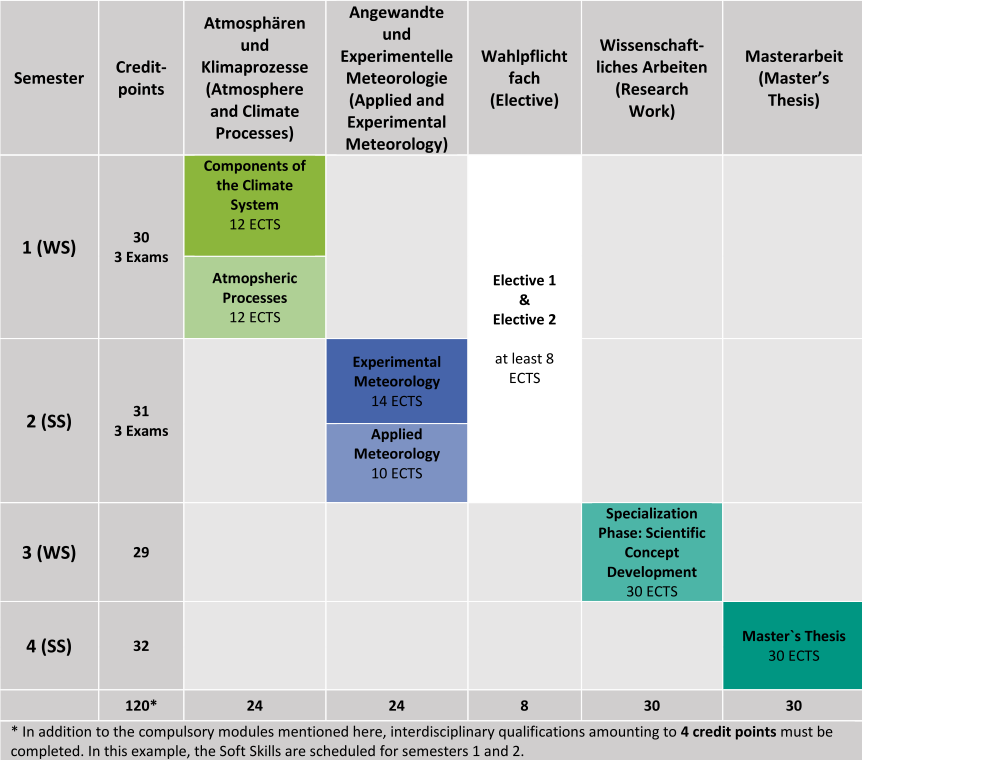The Degree Program
Our two-year MSc degree programme contains 120 ECTS points distributed equally over four semesters. The first year consits of lectures, ecercises and practicals (compulsory and elective) followed by an individual research project in year 2.

For more information regarding the MSc programme check our module handbook.
Components of the Climate System:
Lectures, course work, computer and modelling classes on individual components of the climate system (e.g. tropics, polar regions, ocean, middle atmosphere) and on climate dynamics and change.
- Middle Atmsophere in the Climate System (WT)
- Seminar on IPCC Assessment Report (WT)
- Tropical Meteorology (WT)
- Polar Meteorology (WT, irregular)
- Climate Modeling and Dynamics with ICON (WT)
- Ocean-Atmosphere Interactions (WT, irregular)
Atmospheric Processes:
Lectures and course work on cloud physics, radiation, aerosols, chemistry and energetics of the atmosphere.
- Cloud Physiscs (WT)
- Atmospheric Aerosols (WT)
- Atmospheric Radiation (WT)
- Energetics (WT)
Experimental Meteorology:
Lectures and course work on individual measurement platforms (e.g. satellite, radar, lidar), advanced practical courses (cloud and aerosol chamber, remote sensing, surface energy balance, instrumented gliders) and a one-week excursion to observatories and labs.
- Remote Sensing of Atmospheric State Variables (ST)
- Advanced Meteorological Practical Course (ST)
- Field Trip (ST)
- Radar Meteorology (ST, irregular)
- Laser Remote Sensing (ST, irregular)
Applied Meteorology:
Lectures, course work, computer and modelling classes on numerical weather prediction, air pollution, meteorological hazards, energy meteorology and data analysis
- Meteorological Hazards (ST)
- Turbulent Diffusion (ST)
- Advanced Numerical Weather Prediction (ST)
- Methods of Data Analysis (ST)
- Energy Meteorology (ST)
Soft Skills:
Generic competences such as scientific writing, presentation, time management or languages (including a free German course)
For more information please check our section Soft Skills.
Electives:
Courses from other natural science or engineering disciplines (e.g. water sciences, geophysics)
For more information please check our section Electives.
Specialization Phase:
Individually develop a chosen topic from the rich research portfolio of IMK into a full scientific concept (literature search, data acquisition, research strategy, data analysis)
For more information please check our section Masters Thesis.
Masters Thesis:
Building on the results from the Specialization Phase, further advance your own research project to finally write your Master’s Thesis
For more information please check our section Masters Thesis.
